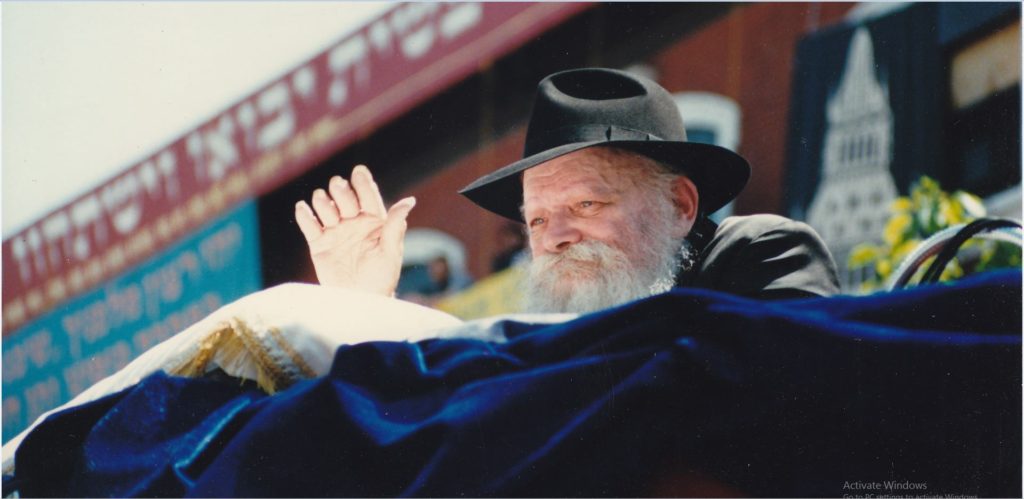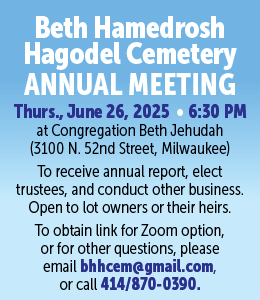The Jewish community the world over finds itself in a jubilee year, 50 years since the Six Day War.
The very existence of the Jewish people, from its very inception – our redemption from Egypt and formation as a people at Mount Sinai, when we received the Torah – and throughout our 3,300 year endurance, is nothing but miraculous.
Whereas ordinarily G-d’s presence is concealed, from time to time G-d “exposes his arm” and performs open miracles so that everyone can see G-d’s supernatural intervention.
Such were the miracles at the redemption from ancient Egypt and similarly such was the miraculous victory over modern Egypt.
May 1967. Egyptian President Gamal Abdul Nasser had mobilized his troops and was threatening to “drive the Jews into the sea.” He declared: “We will be marching on to Haifa, Jaffa, Akko! We shall slaughter you. We shall wipe you out. Kill the Jews. Wipe out Israel.”
Egypt had moved 100,000 troops, 1,000 tanks, and 900 heavy guns into the Sinai desert. Egypt signed a pact with Syria to the north and Jordan to the east, tightening a noose around Israel’s neck. Foreign countries advised their citizens to leave the area. The United Nations Peace-Keeping Force was dismissed and sheepishly left the region.
The media was almost unanimous in its feeling that the small Jewish state was outflanked and outgunned by its enemies and stood little chance of survival. It was obvious that the world was going to stand by once again and let happen whatever might happen.
People in Israel were left in total fright, preparing for the worst, as did the government. Holocaust scenarios were discussed openly in the media. After 19 years of an uneasy cease-fire, Israel’s enemies were finally going to take up where they left off in the late 1940s.
Israel’s Defense Department estimates expected at least 10,000 casualties in the impending war. Public parks were designated to be converted to cemeteries, G-d forbid, after the war.
I remember the fear of all of the Jewish people in America, as throughout the world. The concern for the safety of our brothers and sisters in Israel was foremost on everyone’s mind and the unity and readiness to help was palpable.
The Rebbe – Rabbi M. M. Schneerson, OBM – whose Yahrzeit anniversary is on the 3rd of Tammuz, this year on the 27th of June – stood out as a voice of confidence and encouragement. “The Guardian of Israel neither sleeps nor slumbers,” he said, quoting the eternal words of Psalms; G‑d watches over His people wherever they are, especially in the Holy Land.
Like this year, Lag b’Omer occurred on a Sunday, the 28th of May. Thousands of Jewish school children assembled in front of Lubavitch Headquarters in Brooklyn for the Lag B’Omer Parade. The highlight of the event was the address delivered by the Rebbe. His talk was filled with a fiery faith and unambiguous optimism as he spoke passionately about the mortal threat to Israel and her people, assuring everyone that Israel would prevail.
In a clarion voice the Rebbe said, “…Your brothers and sisters who find themselves in the Holy Land, in Israel, now stand in a situation in which G-d shields them and sends them His blessings, His success and salvation to an even greater degree – in order for them to be saved; and, indeed, they will be delivered from the current situation successfully.
“You, dear children, carry the special duty of helping them. This, by studying an additional verse of Torah, and through your fulfillment of an additional Mitzvah – not missing an opportunity; and through ‘Loving your fellow as yourself.’ This will help save every Jew wherever he may be from the hardships he encounters.
“We shall then see the fulfillment of the verse that ‘You shall dwell securely in your Land’ – the Jews in Eretz Yisrael will live in safety; ‘And I shall set Peace upon the Land’ – that G-d will grant peace to the Holy Land; ‘and I shall be your G-d’ – Hashem will be our G-d … and especially the Jews in the Holy Land, will be G-d’s people, whom He will lead with His full, open, holy and generous hand [delivering them] from all difficulties.”
The Rebbe had also previously instructed American and other foreign Yeshiva students in Israel to remain there and not return home, although their parents were extremely – and understandably – anxious. The Rebbe’s response was published widely in the Israeli press. By instructing his followers to remain, the Rebbe took personal responsibility for their safety. In effect, he guaranteed the parents that their children would return home safely.
At the same time, he urged Jews the world over to do something practical to help Israel overcome this dire threat to her very existence. Besides material support for the war effort, and in addition to tanks and fighter jets, Israel mainly needed G-d’s help. Quoting the Talmudic statement that donning tefillin has the effect of bringing fear onto the enemies of the Jewish people, the Rebbe launched the International Tefillin Campaign. With as many Jews as possible observing this hallowed mitzvah, it would contribute in a tangible way to Israel’s security. He called upon Jews around the world to encourage their brethren to begin putting on tefillin, even if they hadn’t done it since their bar mitzvah, or ever in their lives.
Israeli newspapers were soon running stories of the Rebbe’s promise that “the enemies of Israel will fear and abandon their schemes against her, in merit of Jews’ putting on tefillin.”
People responded instantly, and Jews in unprecedented numbers embraced the campaign. The environment was charged. Even Jews who for a long time had not identified as such, came forth and stretched their arms with the request to be donning tefillin.
On the 28th of June, nine days later, the battles began. In lightning speed Israel decimated the Egyptian Air Force and defeated the armed forces of Egypt, Syria and Jordan.
Six days after the war began the world stood amazed at the swift and bold victory. Within one dizzying week, Israel defeated five armies on three fronts and liberated territories of its promised homeland. Jerusalem was reunited under Jewish sovereignty and the Six Day War would be recorded for posterity as Israel’s finest hour.
Israel experienced a victory unmatched in its history. The Israeli IDF Central Command declared that this was a G-dly miracle. The world stood in awe. They all recognized that a miracle had taken place. Newspapers reported:
“Across the deserts of Sinai, a Biblical prophecy comes to pass, as the forces of Israel sweep on in an astonishing triumph of strategy…
“And that victory is a swift, smashing and total one, as a crack air force, infantry, artillery and tank corps combined to sweep across the Sinai Peninsula to the Suez Canal, East to the Jordan…
“In six days, the war was over. How did Israel do it?
“It’s the first time in nineteen years that Jews have been allowed to visit and pray at the site of the ancient Temple of Solomon.
“And Israel shall be a proverb among all peoples.”
The Rebbe, on his part, expressed profound gratitude to the soldiers who had risked their lives in the war.
The Rebbe saw the heart of the Jewish people open wide. It was a biblical moment, an opportunity of cosmic proportions. The Rebbe urged Jewish leadership to respond. He asked to speak about returning to tradition, and they would listen, he said. Ask them to don tefillin, and they will roll up their sleeves, followed by adopting a fuller Jewish way of life.
Thus, the worldwide Tefillin Campaign was launched. Millions of Jews throughout the world have since donned Tefillin and to countless individuals and families it was the opening of a path to a greater involvement in Jewish life.
Rabbi Yisroel Shmotkin is executive director of Lubavitch of Wisconsin.



